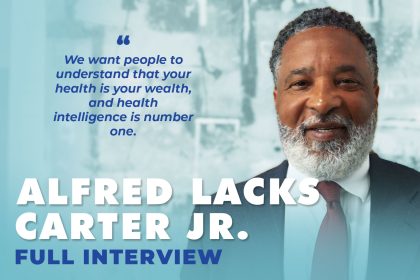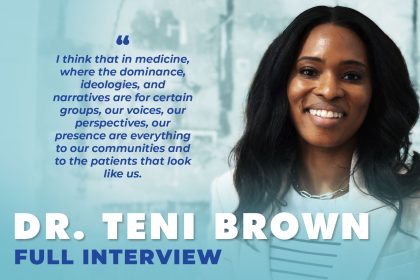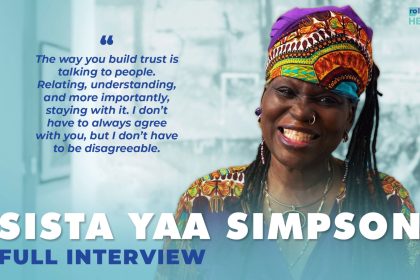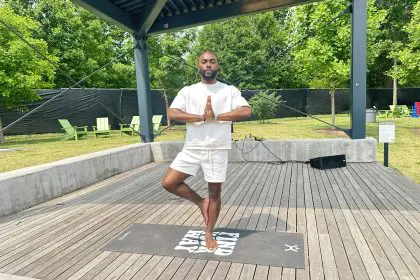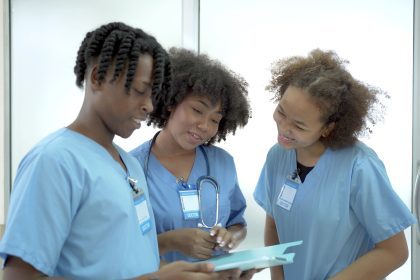Dora Dantzler-Wright, with a commendable 36 years in long-term recovery, stands at the forefront of substance abuse treatment and recovery as the founder and executive director of the Chicago Recovering Communities Coalition (CRCC), Illinois’s pioneering recovery community organization. Her journey in the field is marked by over two decades of dedicated service as a certified addictions counselor, deeply involved in combating alcoholism and substance abuse. Dora’s extensive background also includes 11 years of expertise in establishing and overseeing residential extended care facilities and recovery homes across both public and private sectors.
Holding a Bachelor of Science degree in health care administration, Dantzler-Wright’s credentials are robust, including certifications through IOADAPCA as a CADC/GCE, CPRS, and NCRS, along with DUI certification and certification as a certified property manager. She further contributes to the recovery community as a recovery coach trainer through CCAR and has served as the executive director of The Path Recovery Living for Women, a 10-bed state-licensed facility, for the past three years.
Dantzler-Wright’s leadership and vision extend beyond CRCC, as she has previously presided as the Board President of the Illinois Association of Extended Care. She also lends her expertise as an Advisory Board Member to Great Lakes Addiction Technology Transfer (GLATTC) and sits on the board of several organizations, including the Polished Nail School and Salon, the first Black-owned nail school, the Center for African American Development (CAARD), Black Faces Black Voices, and Twin Cities Recovery Project (TCRP), contributing to a broad spectrum of community development and empowerment initiatives.
[Editor’s note: This is an extended transcription. Some errors may occur.]
Munson Steed: Hey, everybody; this is Munson Steed. Welcome to another edition of HealthIQ, where we introduce you to those individuals who are working to raise awareness, working to heal our community, each and every day, providing services, and ending the disparities that have tragic endings all far too often in our community. Today, I have Miss Dora Wright, and she clearly is a leader in the area of substance abuse and recovery. How are you today?
Dora Dantzler Wright: I’m alive and well.
MS: Where and how did you have this moment where you decided that healing our community and recovery being possible would be part of your mission? And if you would just introduce us to you and your organization.
DDW: My name is Dora Dantzler Wright, and I am with the Chicago Recovering Communities Coalition. I’m the founder and executive director. I grew up in this community. I grew up on the west side of Chicago. I graduated from Roberto Clemente High School in Humboldt Park and it was through living in the community that I noticed addiction was really prevalent.
I was a troubled teen and I experienced addiction firsthand, alcoholism and active addiction. And at the age of 24, I found myself a single mother, college dropout and I wanted something better in life, and I looked around at the community and there was no place for help. So for me I sought a different community. I left the community where I had been for years and went to a predominantly white community to seek recovery.
And I believe that’s where it all started for me, because once I healed and got the healing for myself and my children, I went back to the community where I had been afflicted with and not very much had changed.
MS: And from that moment you decided that your mission was?
DDW: To go back to the community and provide services in the community where services were hidden. If one didn’t know how to access resources in a community, then they suffer. I had to go outside of the community only to come back to say, these are the services that I know that is needed in my community, which is the west side of Chicago.
MS: So, when you think about recovery and having to go outside of your community, what level of hope have you been able to bring back to your community through your organization?
DDW: I believe that the level of hope that we brought is visibility. Addiction is prevalent, but we want recovery to be prevalent. We want to put a face on recovery, and we want to provide recovery support services to a community, where the disparities are evident. And if disparities are evident, why is it that in the African American community. These services are hidden and the recovery rate for African Americans are way much lower than Anglos.
MS: Just following up that line of thought. When you say they’re hidden, for somebody who hadn’t been trick or treating lately for recovery services. Explain to somebody who’s watching, how recovery services are hidden from the black community?
Resources are too often hidden
DDW: They’re hidden because we have to work harder at accessing them. The services were hidden in a community where there’s a prevalence of 501(c)(3)s, recovery support services. But for someone like myself as a single mother, where do I go for childcare? Where do I go for transportation? Where do I go If I have no insurance and I need after care services? Once I leave a detox program.
There are no signs, or there is no book of resources that says, this is where you access services. What if I need services for my children? Inside of a school system that doesn’t promote you being able to access a social worker to get those services. If you don’t know to ask those questions, how do you get those services? I didn’t have insurance.
MS: For young women like yourself looking for recovery that she couldn’t see, how do you think that impacted your length of time in active addiction and alcoholism? Given that you really couldn’t see or weren’t directed towards services while in action, active addiction, or that you could stumble upon.
DDW: It prolonged it. It prolonged my active addiction. It prolonged the difficulties for me to access services for mental health services. Because in the neighborhood that I grew up in. They just didn’t talk about. They didn’t talk about how do you get help? How do you get service? Where do you get them at? What’s going to happen if you fail as a mother? what’s going to happen if you fail as adult more?
MS: In being able to provide a holistic look at addiction given mental health, given physical health, emotional health. How important is it to treat the whole human versus just the addiction? When someone is coming in and really needing a hundred percent care of their entire person.
DDW: It’s very important to treat the whole person, not just the addiction. One of the things I had to figure out on this journey was how to simultaneously treat my mental illness as well as my addiction. And then, treat the physical components of my addiction as well. And then, began to heal mentally from the trauma of addiction, the stigmatization of. It was stigmatized in my community, to be a mother, to be an African American mother with children. There was a basting associated with that, to just be addicted period, and to have a mental illness attached to it.
MS: So, at what moment did you recognize, become diagnosed with a mental illness, that you could begin to address and recognize that you did have a mental illness. When did all of this happen for you?
DDW: I was diagnosed during active addiction. Growing up, I didn’t have a mental illness. If I did, it was undiagnosed. But I was diagnosed in active addiction, towards the last 5 years of my addiction, when I was diagnosed. So, in some ways it led me to believe addiction in some ways caused by mental illness, or it was, I have exacerbated my addiction.
A devastating diagnosis
MS: And so, when they told you, you had a mental illness the first time it gave you a description diagnosis. What was your reaction?
DDW: I was devastated for two reasons. The first reason was, I wasn’t honest about my addiction. In the community, in the African American community where I come from, it was easier to talk about mental illness than it was about addiction. If I had been honest about my alcohol and drug use, then maybe it would have shed way more light upon my diagnosis but I did not disclose my addiction.
MS: So, you seek help. You know that you now have a mental illness that is truly, honestly diagnosed that you recognize. How do you begin to manage care? For both your addiction and your diagnosis? Dual diagnosis at this moment, that you really have to maintain more than just your recovery of alcohol and drugs. You now have to maintain your mental health status at the same time.
DDW: What happened to me was ironic. I ended up in the hospital in cardiac arrest because I was abusing my mental health medication, and I was in active addiction. And it was at the time that I went to a Detox center, because at the time I didn’t have insurance, I could only get detox. And for me, that was the time that I recognized that both of these issues have to be addressed simultaneously or I couldn’t become a healthy person. And it was through seeking after care services, while I was seeking services for the mental illness diagnosis that I had.
And it became. Things just opened up for me, because, as I began to get honest about my addiction, then I could address the issues of the mental illness. Whether or not it was because of the drugs or was it a definitive diagnosis. So that’s when it became clear to me that I had to work harder at treating them both to become healthy, to become a better mother, become a better person, to be stable in a society where I so wanted to be a part of.
MS: So, seeing that treatment was having a positive effect on you, where did you find the most comfort in being able to reestablish a relationship with yourself and your children?
DDW: That was difficult, because I had to go back to the community where I lived and I had to go back to the treatment center and say to them, “I don’t have insurance, but I want to access this aftercare program.” There was one or 2 free services that I could access for myself and my children and I just continued to look for other services that [were] available to us.
At the time that I came into recovery, 12-step programs were really prevalent and I could access AANACA, EA, which is emotional anonymous. Which would accommodate some dual diagnosis individuals and I just didn’t give up. I wanted solely to be a better individual. I wanted solely to be a better person. I wanted to be a better mother. I wanted to be a better daughter and I just did not give up looking for services.
MS: So, you move through this process and — thank you for your honesty — you have a moment, and you think about creating services for others. Why become an institutional builder when you could have just sought peace for yourself?
Helping others get out like she got out
DDW: It was the community. It was the community that I had lived in all my life. And I just knew that if I had gotten out, there [were] other people trying to get out. And how do you? It’s almost like I’m an ambassador for my community. It has to be something else other than this. You can go from 10 blocks away, and you see something different. But the 30 blocks that you live in, this is all you see.
How do you put a face on recovery? And how do you lend hope other than being a voice for people? I can’t go in the corner now that I’ve had the help that I need and leave all these other people out there. I found a way out. Now I need to tell these other people, I found a way out, and so can you. Be hope, be a beacon of hope for people and share the same resources with those people that I’ve used to get free, to get out.
MS: So, you knew that you wanted to deliver services ’cause there was a need. How did you begin your first, establishing your organization in the community?
DDW: I started visiting other cities to see how recovery community organizations looked and how they ran, and what communities they served, and what was the basis or premise. And then, I began to share my vision and my hope for the community that I lived in and how my community didn’t have a recovery community center. They had hospitals. They had detox centers. They had Methadone clinics, and you could see that that addiction was prevalent. But where do recovering people go if they’re just seeking help?
But where do you go if you are not in recovery? And you are seeking that? Nobody talked about recovery where I came from. They didn’t talk about, well you know, there’s a way to stop using alcohol or drugs, and you can go over here. They didn’t talk about that. Though I wanted my vision to become a reality.
We can have a recovery community center right here in Chicago, Illinois. Right in the middle of addiction, where people can come into a community center, access services, access food pantries, decide whether or not they wanted to go to AAENA smart recovery OA, whatever help that they need. We could have the resource, even if we couldn’t provide the services. We could point you in the right direction, that was important in a community that wasn’t seen.
MS: For those sisters, if you were giving a speech and you were going to share with them the do’s that they need to … as they begin their journey to forgive themselves for all of the trauma and drama that they have had and seen, what would you say to them?
Dora’s advice to those who might follow her path
DDW: I would say, “Don’t give up.” I would say, “Seek some power greater than yourself and don’t let it be alcohol and drugs, or people. Find and seek the resources that you need, and don’t give up until you find them. You know within yourself what you need to be better and don’t give up. Keep looking, keep seeking, ask questions and go after it, go after it.”
MS: For the level of shame that many bring into recovery, that makes the excuse for going in the revolving door of recovery. What do you say? Given the fact that God has seen everything, so why even imagine the shame?
DDW: I would say, hold your head up because there is hope and God hasn’t forgotten about any of us, no matter what we’ve done. No matter how far down we have went, we can still stand up and be that beacon of hope and live. Pass the shame, pass the guilt, pass all of that that kept us there for so long. Fame kept me in active addiction for a long time, because I just didn’t want to tell anybody about it. Tell somebody about talk about getting into any of the 12-step programs offers sponsorship and
MS: Actually, learning how to practice and getting a practice and 12-step education. And obviously the spiritual principles of 12-step. How have you enjoyed, benefited, and learned from having sponsors and the 12-step programs available to yourself?
DDW: It has been one of the most rewarding and enlightening parts of becoming a whole female. It has opened my life up to a continuous process of change. The 12-step model has allowed me to continue to progress in my older age and it has been so rewarding to be able to just practice what I’ve learned and put it into action. Because people get better by doing, not by talking. Things I’ve been taught are the things that I do, and I practice in my everyday life.
MS: When you think of what you’ve established now and if someone was going to describe you, that knew you as your friends do, those who knew you when you’re in active addiction. When they look at you now, how do they lean into you? Given who you and God have decided that you’ve chosen to be.
DDW: I’m an inspiration. I am a beacon of hope. I am aight. Aight.
MS: You mentioned your mental health diagnosis, for those who too know that they have a mental health, undiagnosed, but they know that there is something there. What would you say to them about dealing with and beginning to address, and seeking the necessary help to get them so that they could heal?
DDW: Don’t be ashamed. Seek the help that you need. Explore different options and don’t just take the first diagnosis that you get. If you want to get a second opinion, go get a second opinion. Because once I began to recover then, I too, saw second opinion. Let me go. Let me just make sure this is really what they say it is. Check it out. Check it twice.
MS: So, once you had checked it twice, and you had another diagnosis. What did you tell yourself? After the second diagnosis.
DDW: I told myself that I had to get better, no matter what, and that I needed to treat both illnesses until I got better, and I could handle things on my own, and that’s what I did. I simultaneously got help for my mental health diagnosis and my substance abuse, and I kept going. I didn’t look back. Until eventually, I was no longer on medication and I could talk about, tell other people. It’s not forever. It’s temporary and as you begin to get better, everything around you will get better. and that’s what happened to me, in my recovery.
As I got better, my children got better, my parents got better, my siblings got better, my ability to work and become a productive individual to go back to college and get my degree. To hold a job, to be able to hold a job, to be able to become a legal citizen. I say, legal citizen, because in the community where I came from, if you didn’t have a driver’s license or you didn’t have those type of things, you wasn’t a legal citizen. I was legal in the United States, but to have my own ID in my own purse, that means a lot.
MS: When you think of the achievements beyond the ID and the things that you’re giving hope to in a community. If you met with the drug czar of the United States today and he asked you. What would the 3 things, if I could give to you and your community today? What would you say that they would be to heal your community?
A need for equitable services
DDW: I would say, we need equitable services. We need programs and facilities that cannot just treat the addiction and heal the whole person. So many times in my community, and our community, institutions or businesses or treatment centers focus on just the addiction, not the holistic model of healing the whole person, and it has to be person centered.
It has to be people like me that look like me, that talk like me in my community and not just Anglo people in my community providing a service. It needs to be some less disparity and more equality in between how African Americans get the help that they need, and Anglos get the help that they need. And that’s why I left my community to go to another community to get the help that I need.
MS: When you think about the general thought of where the usage of Fentanyl and many of the other drugs that are common, opiates. They’re not always thought of as a black used product, or there’s no opiate or fentanyl addiction happening in the black community. Can you shed some light? Just give us a report on where Fentanyl, use opiate use are in the black community in Chicago?
DDW: It is at an all-time high. CRCC is located in the Austin community where opioid use and Fentanyl use, and I want to say that we are one of the highest communities on the west side of Chicago. And it is astonishing how this is not the first drug epidemic that I have been involved in or exposed to. But the disparities, even with having Narcan available, It’s not equitable in our community, it is, it is. And I don’t think people really understand it.
I think that it has become almost like. Oh, it’s happening. How do you stop it? We have to do more. We have to make sure that Narcan Naloxone is in every home that’s on every corner. Because it is still, we are one of the highest. I can’t say it enough. We’re one of the highest communities on the west side of… from Opioid Use and Fentanyl.
MS: Legalize marijuana in the black community, how do you see its impact now that everybody seems to be applauding the idea? But what is the impact on our community with legalized marijuana?
DDW: I think it’s going to be the next epidemic in the black community. It is so right now, socially acceptable. It’s not like 1987, when I was comin about where, if you didn’t know a dealer. you couldn’t get it. Just about on every corner and everywhere you look now, people are just out about and like, I say, socially acceptable. It’s like alcohol, it’s socially acceptable, and not that they are not social users, but it is going to be another epidemic and the African-American community.
MS: So, when you say another epidemic, describe what type of epidemic are we going to see?
DDW: You’re gonna see an increase in mental health diagnosis. You’re gonna see an increase in crime, that is, it is a contributing factor already. And there are studies out, and I was reading a study, I want to say, about a month or so ago, where it talked about the rate of mental illness with African-American men who had prolonged use of marijuana.
Anxiety, depression and it was just it was, it was shocking in a way. Because I think, for so long in the community, it has been socially acceptable, and it’s been a gateway drug. Our community has already been devastated by other drugs and now it’s infiltrated with marijuana. Our children are getting it. It’s so accessible, it is just accessible.
Putting a face on recovery
MS: Lastly, when you think of the experience that you have now, can we find and build a bright enough light that our community can begin to have recovery as its first option? When a family member thinks their individual family member needs an intervention?
DDW: I have hope. I believe that will happen sooner than later. I think that all the efforts, all the publicity, all the advocacy efforts will bring about this change. I don’t know when, but all the efforts that we’re doing and what we’re doing and how we’re doing to bring awareness to a community and put a light on. It’s gonna happen. And I certainly want to be a part of it and that’s why I keep doing the work that I’m doing, because we wanna put a face on recovery. We wanna let families and individuals know that help is available.
MS: You’ve spoken about recovery. You’ve dealt with mental illness. … The role in the identity of HIV now, in our community. How do you see it? And what should we be aware of as a community, as it relates to HIV?
DDW: We should be aware that because it’s now quieter and that we have an opioid epidemic, it’s not gone away. And it is alive, still in our community, it’s almost like the opiate epidemic has just covered it up some, and now is secondary. It’s still alive, and it’s still killing our community. And we need to be aware that it hasn’t gone anywhere and it’s still affecting our community.
I don’t have the exact data in front of me, but I work closely with some people at the CDC, and I work closely with some other programs. And one of the things that we do in our harm reduction kits, is we are continuing to talk about safe sex practices and passing out prophylactics and other things to be able to help. Just like we pass out Narcan, just like we pass out Fentanyl test strips, just like we pass out, mask and hand sanitizer. In our community, and we’re being affected at rates that like, I said, don’t have the exact numbers, but your opioid epidemic just kind of went a little bit higher to cover it up some.
MS: Well, I wanna thank you for being honest and spending this time with me here on Health. IQ. It was great to hear your voice, your testimony, and your truth. Thanks to all of those who choose to listen, share this video. When you see it. It will give light and hope to individuals in our community to know that recovery and riches are both possible, if you look and keep your light on the hope and here is an example of hope and light and love, Miss Dora Wright. Thank you for being on Health IQ.
DDW: Thank you so much, Mr. Steed. It was my pleasure. and I look forward to talking to you again real soon.
MS: Thank you.
DDW: Thank you.

